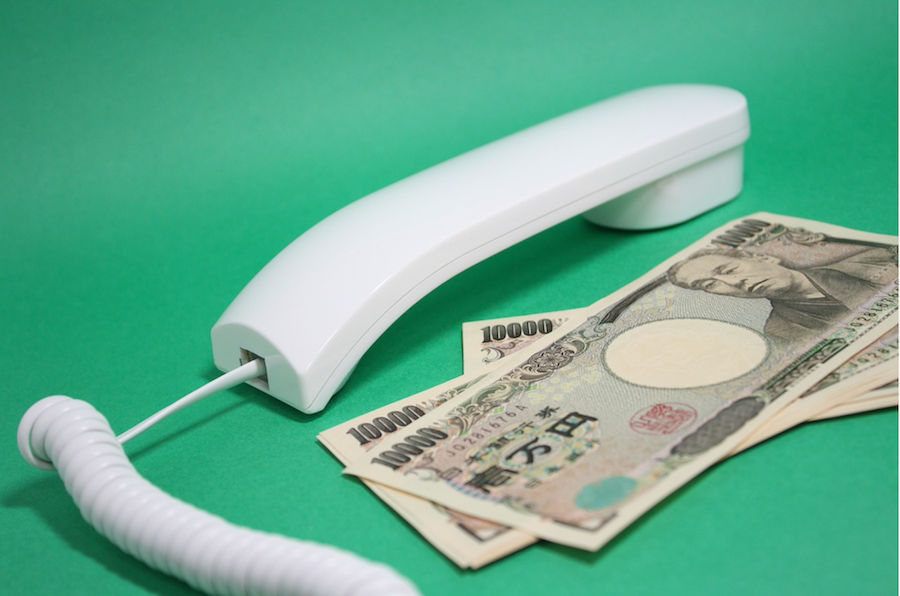Sending Money to Someone Without a Bank Account? Heres What You Need to Know
GPT_Global - 2024-04-27 09:30:09.0 205
Can I send money to someone without a bank account using a credit card?
Sending money to someone without a bank account can be a challenge, especially if you are relying on traditional methods like wire transfers or checks. However, with the rise of digital remittance services, it is now possible to send money to someone without a bank account using a credit card.
One option for sending money without a bank account is through mobile wallet services. These services allow you to transfer funds from your credit card to a virtual wallet, which can then be accessed by the recipient through their mobile phone. This method is convenient and often has lower fees compared to traditional remittance services.
Another option is to use a prepaid card. You can load the card with funds from your credit card and then give it to the recipient. The recipient can then use the prepaid card to make purchases or withdraw cash from ATMs. This method may incur some fees, but it is still a viable option for sending money without a bank account.
Some remittance services also offer cash pickup options. In this case, you can send money online or through an app using your credit card, and the recipient can pick up the cash at a designated location. This is a good option if the recipient doesn't have a bank account or access to a mobile wallet or prepaid card.
It's important to note that when using a credit card to send money to someone without a bank account, there may be fees involved. These fees can vary depending on the service provider, so it's essential to compare rates before making a transaction.
In conclusion, while it may have been difficult in the past, it is now possible to send money to someone without a bank account using a credit card. With the convenience and accessibility of digital remittance services, you can easily and safely transfer funds to your loved ones without the need for a traditional bank account. So the next time you need to send money, consider these options for a hassle-free experience.

What happens if the recipient doesn't have a valid ID when receiving the money without a bank account?
When sending money through a remittance business, it is important to ensure that the recipient has a valid ID in order to pick up the funds. However, what happens if they don't have a valid ID? This situation can arise for various reasons, such as losing their ID or it expiring. In such cases, the recipient will not be able to receive the money without a bank account.
Firstly, it is important to understand that remittance businesses have strict regulations and policies in place to prevent fraud and money laundering. These policies require recipients to provide a valid government-issued ID when collecting the funds. Without this identification, the remittance company cannot release the money.
In some cases, the recipient may be able to provide alternative forms of identification, such as a utility bill or birth certificate. However, these options may vary depending on the policies of the remittance company and the country where the funds are being received.
If the recipient does not have a valid ID or any alternative forms of identification, the sender may need to consider other options for sending the money. One option could be to transfer the funds directly to the recipient's bank account, if they have one. Another option could be to send the funds through a different remittance company that may have different ID requirements.
In conclusion, it is crucial to ensure that the recipient has a valid ID when sending money through a remittance business. If they do not have a valid ID, they will not be able to receive the funds. It is always best to double-check the ID requirements of the remittance company before sending money to avoid any inconvenience or delays.
How do I cancel a money transfer to someone without a bank account?
Canceling a money transfer can be a stressful and frustrating experience, especially if you are trying to send money to someone without a bank account. Fortunately, there are steps you can take to cancel a money transfer and ensure that your funds are returned safely. Here's what you need to know:
The best way to cancel a money transfer to someone without a bank account is to contact the remittance company or service as soon as possible. Most companies have a cancellation or refund process in place for situations like this. Make sure to have your transaction details and any proof of payment ready when you call, as this will help expedite the process.
If you are unable to contact the company directly, you can also try contacting your bank or credit card provider. They may be able to assist you in stopping the transfer or initiating a chargeback to retrieve your funds. Keep in mind that this process may take longer than contacting the remittance company directly.
If the money has already been sent and cannot be returned through the remittance service or your bank, you may need to reach out to the recipient and ask them to return the funds. This can be a difficult situation, so make sure to explain why the transfer needs to be canceled and provide any necessary information for them to return the money.
It's important to note that canceling a money transfer to someone without a bank account may not always be successful. If the funds have already been withdrawn or picked up by the recipient, it may be impossible to retrieve them. That's why it's essential to act quickly and carefully when canceling a transfer, especially if the recipient does not have a bank account.
In the future, it's always a good idea to double check the recipient's information before sending a money transfer. This will help prevent any errors or issues from arising and save you the hassle of having to cancel a transfer. If possible, try to use a remittance service that offers cancellation or refund options for added peace of mind.
Cancelling a money transfer to someone without a bank account can be a stressful experience, but by following these steps, you can increase the chances of retrieving your funds. Remember to act quickly and communicate clearly with all parties involved to ensure a smooth process. And as always, double check all information before making a transfer to avoid any issues in the future.
Will the money be converted to the local currency if the recipient doesn't have a bank account in the same country?
When it comes to remittance, one question that often arises is whether or not the money will be converted into the local currency if the recipient doesn't have a bank account in the same country. The short answer is yes, the money can still be converted and received by the recipient even without a bank account.
Remittance businesses have made it easier for people to send and receive money across borders, especially for those who do not have access to traditional banking services. With these services, the sender can choose to have the money converted into the local currency of the recipient. This is beneficial for both parties as it eliminates the need for the recipient to worry about exchanging the currency themselves.
One option for receiving the converted funds is through cash pickup. Many remittance companies have partnerships with local businesses or banks where the recipient can go and collect the money in their local currency. This process is quick and convenient, making it an ideal option for those who do not have a bank account.
Another option is through mobile wallets. With the rise of technology, many countries have mobile wallet systems where the recipient can receive the converted funds directly into their digital wallet. This eliminates the need for physical cash and provides a secure way of receiving and storing money.
However, it's important to note that there may be additional fees associated with converting the funds and using alternative methods of receiving the money. It's best to research and compare different remittance companies to find the most cost-effective option for both the sender and the recipient.
In conclusion, the money can still be converted into the local currency and received by the recipient, even without a bank account in the same country. With the convenience and accessibility of remittance services, sending and receiving money internationally has become easier and more efficient. So whether you're a sender or a recipient, rest assured that your money will reach its intended destination in the local currency.
Can I send money to someone without a bank account through a mobile app?
Mobile apps have revolutionized the way we send and receive money. With just a few clicks on our phone, we can transfer funds to anyone, anywhere in the world. But what if the recipient doesn't have a bank account? Can you still use a mobile app for remittance? The answer is yes, and here's how. Many mobile apps now offer the option to send money to someone who doesn't have a bank account. This is known as “cash pickup” or “cash on delivery” remittance. It allows the recipient to collect the funds in cash from a designated pickup location or have it delivered to their doorstep. To send money without a bank account, both the sender and recipient will need to have the mobile app installed and registered. The sender can then initiate the transaction by entering the recipient's details such as name, contact number, and pickup location. The app will provide a unique code or reference number that the recipient needs to present when collecting the funds. One key advantage of using a mobile app for remittance is convenience. Recipients don't have to travel to a bank to receive the funds; they can simply pick it up from a nearby location. Additionally, the transaction is usually completed within minutes, making it a quick and efficient way of sending money. Another benefit is the low transaction fees associated with mobile app remittances. Traditional remittance methods such as bank transfers or money wiring services often charge high fees, making it costly to send small amounts of money. With a mobile app, the fees are generally much lower, making it an affordable option. Security is also a top priority for mobile apps offering remittance services. Most apps use advanced encryption technology to protect users' personal and financial information. This gives users peace of mind knowing that their money and data are safe. In conclusion, sending money to someone without a bank account is possible through a mobile app. It offers convenience, low fees, and security, making it an excellent option for remittances. So if you have loved ones or business partners who don't have a bank account, you can still use a mobile app to send them money quickly and easily.How can I make sure the money is transferred securely to someone without a bank account?
Remittance businesses are an important way to transfer money to loved ones who may not have access to a traditional bank account. However, many people may be concerned about the security of these transactions. Here are some ways to ensure that your money is transferred securely to someone without a bank account.
Firstly, using a reputable remittance service provider can give you peace of mind as they have systems in place to ensure the security of your money. Look for companies that are registered and regulated by authorities such as financial regulatory bodies or government agencies. This ensures that they adhere to specific guidelines and safety protocols to protect your money.
Secondly, consider using digital forms of remittance. Mobile or online transactions are becoming increasingly popular and provide a safer option than traditional methods such as sending cash through the mail. Digital transactions use encryption and other security measures to protect your personal and financial information.
If you are sending money to a person without a bank account, make sure to choose a remittance option that offers a secure collection method. Some remittance providers have partnerships with trusted local agents who can distribute the funds to your recipient in cash. This eliminates the risk of exposing your recipient's personal information, as they do not need to provide any bank details.
Lastly, it's essential to keep your transaction information confidential. Never share your remittance details or personal information with anyone. Scammers may try to trick you into revealing this information, which can put your money at risk. If you are unsure about a transaction or receive suspicious requests for information, contact your remittance provider immediately.
In conclusion, there are various measures you can take to ensure that your money is transferred safely to someone without a bank account. By using a reputable remittance provider, opting for digital transactions, choosing secure collection methods, and keeping your information confidential, you can have peace of mind knowing that your money is in safe hands.
Can I send money to someone without a bank account using a prepaid debit card?
Sending money to someone without a bank account can be a bit tricky, but it's not impossible. One option you have is using a prepaid debit card. These types of cards can be purchased at many retail stores and loaded with funds for spending, just like a regular debit card. But can you use them to send money to someone without a bank account? The answer is yes, but there are a few things you need to know.
First, make sure the person you are sending money to has access to a prepaid debit card. They can purchase one themselves or you can buy one for them and send it as a gift. Next, load the card with the desired amount of money. Usually, there is a small fee for loading funds onto a prepaid debit card, so keep that in mind.
Once the card is loaded, the recipient can use it to make purchases or withdraw cash from an ATM. They can also transfer the funds to their own bank account if they have one linked to the card. However, if the person you are sending money to does not have a bank account, they may face some limitations. Some prepaid debit cards do not allow cash withdrawals unless the recipient has a bank account. So, make sure to check the terms and conditions before choosing a card to use for sending money.
Another thing to consider is the fees associated with using a prepaid debit card. Apart from the initial loading fee, some cards may have monthly maintenance fees or transaction fees for each purchase or withdrawal. These fees can add up and significantly decrease the amount of money the recipient receives. It's essential to choose a card with reasonable fees to ensure your money goes further.
In conclusion, while it is possible to send money to someone without a bank account using a prepaid debit card, there are a few things you need to keep in mind. Make sure the card is accessible to the recipient and check for any fees associated with the card. With some careful planning, a prepaid debit card can be a convenient and secure option for sending money to someone without a bank account.
About Panda Remit
Panda Remit is committed to providing global users with more convenient, safe, reliable, and affordable online cross-border remittance services。
International remittance services from more than 30 countries/regions around the world are now available: including Japan, Hong Kong, Europe, the United States, Australia, and other markets, and are recognized and trusted by millions of users around the world.
Visit Panda Remit Official Website or Download PandaRemit App, to learn more about remittance info.

